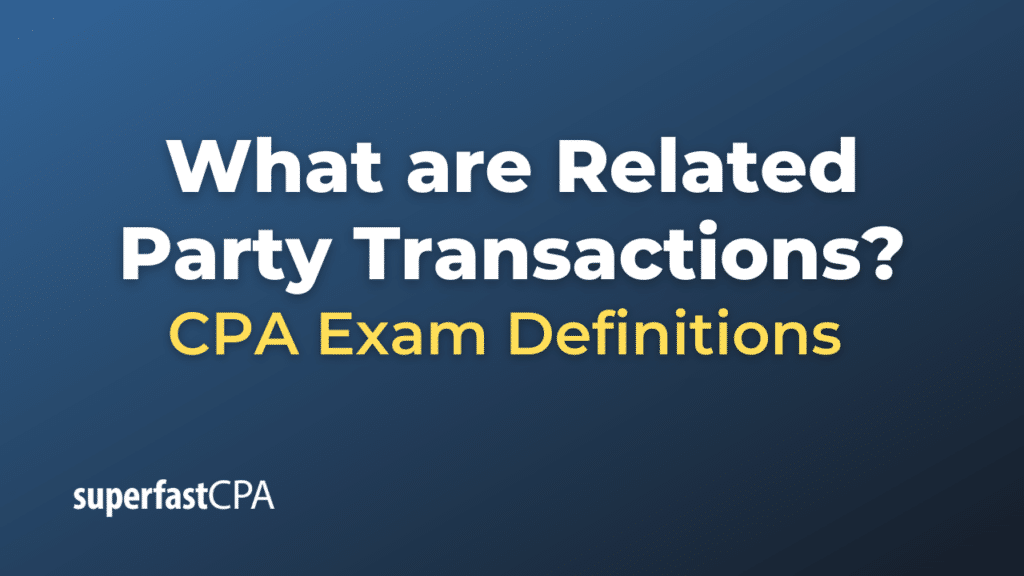Related Party Transactions
Related party transactions refer to deals or arrangements between two parties who are joined by a pre-existing business relationship or common interest. These transactions might not be arm’s length, meaning they might not be conducted under the same terms and conditions as between unrelated parties.
Related parties can be:
- Entities and their key management personnel: This includes directors and senior executives, as well as their close family members.
- Parent companies and their subsidiaries.
- Subsidiaries of a common parent.
- Entities with shared key management personnel.
- Entities where one can control or significantly influence the financial and operating policies of another.
- Joint ventures or associates.
Here’s why the scrutiny of related party transactions is essential:
- Potential for Conflicts of Interest: Because the parties have a pre-existing relationship, there’s a potential for one party to benefit at the expense of the other, especially if the terms of the transaction are not comparable to what might be agreed upon with an unrelated party.
- Financial Statement Transparency: For public companies, especially, stakeholders (like shareholders and creditors) need assurance that transactions are being reported fairly and that the company’s financial condition is represented accurately.
- Regulatory Concerns: Many jurisdictions have specific disclosure requirements for related party transactions to ensure transparency and prevent potential abuses.
- Tax Implications: Tax authorities may scrutinize these transactions to ensure they aren’t structured to avoid taxes (e.g., transfer pricing arrangements).
Example of Related Party Transactions
Let’s delve into a more detailed and practical example of a related party transaction.
ElectroCar Inc. is a company that manufactures electric cars. The CEO of ElectroCar, Mr. James Roberts, has a brother, Mr. Alan Roberts, who owns a battery manufacturing company called PowerBatt Co.
ElectroCar decides to purchase batteries for its cars and enters into a supply agreement with PowerBatt Co.
- Deal Terms: ElectroCar agrees to purchase batteries from PowerBatt Co. at a price of $5,000 per unit, with a commitment to buy at least 10,000 units over the next year.
- Market Comparison: Other companies in the market are selling similar quality batteries at a price of $4,500 per unit.
This transaction between ElectroCar and PowerBatt Co. is a related party transaction because of the relationship between the CEOs of the two companies – they are brothers.
Given the difference in price between the agreed rate and the market rate, several concerns arise:
- Fairness: ElectroCar seems to be paying a higher price for batteries than what’s available in the open market. This might not be in the best interest of ElectroCar and its shareholders.
- Conflict of Interest: The CEO of ElectroCar may have a vested interest in ensuring PowerBatt Co.’s success because of his brother. This could potentially influence the decision to accept a higher price.
Necessary Actions:
- Disclosure: ElectroCar should clearly disclose this transaction in its financial statements, detailing the terms and the relationship between the parties.
- Approval: Given the potential conflict of interest, this transaction should ideally be reviewed and approved by a committee of independent directors at ElectroCar. In some jurisdictions or company bylaws, shareholder approval might also be necessary.
- Periodic Review: The terms of the agreement should be periodically reviewed to ensure continued fairness, especially if the market dynamics change.
This example illustrates the complexities that can arise with related party transactions. It underscores the importance of transparency, proper oversight, and governance to ensure the interests of all stakeholders, particularly shareholders, are protected.













